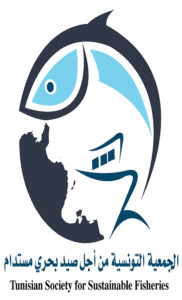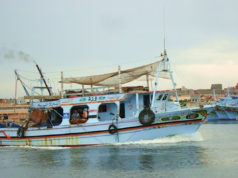1. Introduction As part of its ongoing efforts to promote sustainable fisheries and protect marine resources, the Tunisian Association for Sustainable Fisheries presents this report to highlight key issues related to the Biological Rest Fund. The report proposes practical solutions to ensure fair distribution, improve governance, and enhance the fund’s effectiveness in protecting fish stocks. The association also reaffirms its willingness to collaborate with the Ministry of Agriculture, Water Resources, and Fisheries, as well as sector stakeholders, to develop effective solutions.
2. The Importance of Biological Rest and the Role of the Fund Biological rest is a crucial mechanism for preventing the depletion of fish stocks by enforcing a temporary fishing halt or reduction in fishing activities to allow resource regeneration. To support fishers during these periods, the Biological Rest Fund was established to compensate those affected by the suspension, ensuring a balance between environmental conservation and the economic sustainability of fishers.
3. The Biological Rest Fund in Tunisia The fund was created to support fishers during fishing bans by providing financial compensation. It is financed through contributions from vessel owners and the government, offering grants to fishers and boat owners affected by biological rest measures. However, concerns remain regarding its effectiveness in achieving environmental and social objectives, particularly in regions like the Gulf of Gabès.
4. Evaluating the Fund’s Performance in Protecting Fish Stocks in the Gulf of Gabès Despite the necessity of biological rest to safeguard fish stocks, its implementation in Tunisia—especially in the Gulf of Gabès—has not yielded the expected environmental benefits. The suspension applies primarily to trawlers, while other fishing methods, such as illegal purse seine fishing, continue to exploit marine resources. Consequently, the fund has become more of a professional compensation tool rather than an environmental protection measure, necessitating a comprehensive review to ensure it meets its intended goals.
4.1. Grants Allocated to Trawlers During Biological Rest A major concern is the allocation of grants to trawlers during the biological rest period in the Gulf of Gabès. These grants are often unjustified since many of these vessels operate beyond the 50-meter depth contour, outside the designated protection areas. As such, they are not directly impacted by the ban, making their eligibility for compensation both environmentally and economically questionable. A reassessment of grant eligibility criteria is essential to ensure that support reaches genuinely affected fishers.
5. Proposals to Improve Fund Efficiency
5.1. Expanding the Scope of Biological Rest
- Inclusion of all impactful fishing methods: The biological rest period should cover all fishing practices that affect fish stocks, not just trawlers.
- Strengthened monitoring: Enhanced inspections and surveillance to curb illegal fishing activities during biological rest periods.
- Involvement of professionals: Engaging fishers and industry professionals in determining biological rest periods and their enforcement areas to ensure alignment with ecological and social realities.
5.2. Reforming the Grant Distribution Mechanism
- Revising eligibility criteria: Grants should be distributed based on fair standards reflecting the economic and social realities of fishers while excluding those not directly affected by biological rest.
- Linking grants to social security: Fisher compensation should be tied to registration with the National Social Security Fund (CNSS) to secure their rights.
- Adjusting grant calculations: Compensation should be based on average declared wages over the preceding three quarters for all crew members and vessel owners to ensure equitable distribution.
- Expanding beneficiary categories: Extending eligibility to other sector workers, especially when biological rest applies to entire marine zones or species facing overfishing.
- Developing a digital platform: Streamlining administrative procedures through digitalized grant applications and mechanisms to ensure direct and efficient fund distribution to eligible fishers.
6. Key Areas for Utilizing Fund Surpluses
6.1. Supporting Professional Organizations Allocating grants to fishing development cooperatives and professional service companies to:
- Reduce production costs: Providing fishing gear at competitive prices.
- Develop alternative economic activities: Promoting eco-tourism, marine aquaculture, and sustainable fishing equipment manufacturing to create additional income sources for fishers and their families.
6.2. Protecting Coastal Zones
- Enhancing fishery resources: Deploying artificial reefs and supporting marine plant conservation programs such as Posidonia seagrass.
- Improving infrastructure: Funding small port maintenance projects and equipping traditional fishing landing sites.
6.3. Encouraging Marine Aquaculture
- Supporting small-scale projects: Financing small fish and shellfish farming units for traditional fishing communities.
- Training and technical support: Providing educational programs for fishers interested in sustainable marine aquaculture.
6.4. Promoting Sustainable Practices
- Raising awareness and providing marine guidance: Establishing regional centers for supporting traditional fishers, similar to agricultural extension services.
- Training fishers: Financing programs on responsible fishing techniques and environmentally friendly practices.
- Encouraging eco-friendly equipment: Promoting the use of less harmful fishing gear.
6.5. Supporting Research and Development
- Funding scientific research: Investing in field studies on traditional fishing and sustainable practices.
6.6. Enhancing Infrastructure at Traditional Fishing Ports and Landing Sites
- Establishing well-equipped landing sites: Providing services such as refrigeration, storage, fuel stations, and local fish markets with adequate docking facilities for traditional fishing boats.
6.7. Strengthening Monitoring and Combating Illegal Fishing
- Enhancing surveillance systems: Allocating part of the surplus funds to improve marine fisheries monitoring and enforce biological rest compliance.
- Promoting co-management of fishery resources: Involving traditional fishing communities alongside government institutions in managing and conserving marine ecosystems.
7. Developing a National Strategy to Protect Small-Scale Fisheries There is an urgent need to establish a National Action Plan for Small-Scale Fisheries that aligns with the FAO’s 2014 Voluntary Guidelines for Securing Sustainable Small-Scale Fisheries. This plan should empower traditional fishers to participate in decision-making and strengthen cooperatives as a mechanism for sector organization and fisher rights protection.
8. Conclusion Reforming the Biological Rest Fund requires structural measures to enhance governance, transparency, and fair resource distribution. The Tunisian Association for Sustainable Fisheries reaffirms its commitment to contributing to effective policy development in partnership with the ministry and industry stakeholders, ensuring the sustainability of marine resources while safeguarding fisher livelihoods.
Naoufel Haddad is the Secretary-General of the Tunisian Society for Sustainable Fisheries, an organization committed to promoting responsible and sustainable fishing practices in Tunisia.






